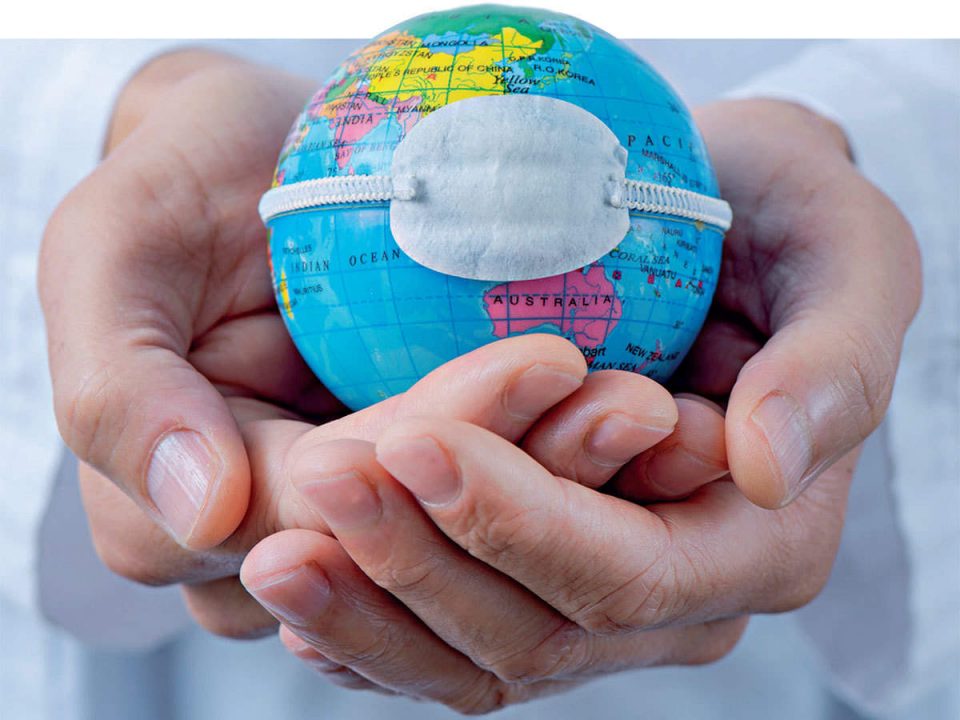How It Started-
A novel strain of coronavirus – SARS-CoV-2 was first detected in December 2019 in Wuhan, a city in China’s Hubei province with a population of 11 million, after an outbreak of pneumonia without an obvious cause. The virus has now spread to over 200 countries and territories across the globe and was characterized as a pandemic by the World Health Organization (WHO) on 11 March 2020.
SARS-CoV-2 belongs to a family of single-stranded RNA viruses known as coronaviridae, a common type of virus that affects mammals, birds, and reptiles. In humans, it commonly causes mild infections, similar to the common cold, and accounts for 10–30% of upper respiratory tract infections in adults. More serious infections are rare, although coronaviruses can cause enteric and neurological diseases.
Social Distancing and Lockdown –
Various numbers of studies have been implemented on the effectiveness of social distancing measures in specific regions. However, the conditions regarding economic scale, political institutions or medical system, etc. of each country greatly differ. Countries around the world started implementing measures to slow the spread of the Coronavirus, from national quarantines to school closures. More than a third of the planet’s population is under some form of restriction.
The World Health Organization, which has officially declared the outbreak a pandemic, has called on ‘all countries to continue efforts that have been effective in limiting the number of cases and slowing the spread of the virus.’
Vaccine Development in India –
With COVID-19 showing no signs of slowing down, India is the second-worst affected country struck by the pandemic, with over 1.12 million cases registered till now. While a lot of companies and independent medical groups are involved in the development of a COVID-19 vaccine, the past month has seen a lot of developments and announcements take place regarding the production of a homegrown vaccine. 30 different Indian companies are trying to produce a vaccine to fight the infection, out of which WHO has given approvals to seven vaccine candidates, some of them are Bharat Biotech’s Covaxin, SII’s AstraZeneca, which are in different stages of testing and clinical studies now.
New Coronavirus Strain-
A few weeks ago, news broke that a more transmissible strain of the coronavirus, SARS-COV-2, has been found in the United Kingdom. This is why many countries across the world like France, Belgium, Austria, and even India have imposed flight bans on flights coming from the UK. The new strain VUI-202012/01 variant traced in the UK has raised cause for concern. Addressing a press conference, PM Johnson said that preliminary data evidenced that it is 70% more transmissible.
On Jan. 4, South African health officials announced they, too, have detected a new, seemingly more contagious strain. South African Health Minister ZweliMkhize announced, “We have convened this public briefing today to announce that a variant of the SARS-COV-2 virus, currently termed 501.V2 Variant has been identified by our genomics scientists here in South Africa.”
Bird Flu Outbreak in India-
With the novel coronavirus still rampant, fear of a new virus that causes bird flu has spread. After bird flu (avian influenza) was confirmed in Kerala, Rajasthan, Madhya Pradesh, Haryana, and Himachal Pradesh, a high alert has been sounded in Maharashtra. Several states, which have been reporting deaths of birds, including crows and migratory species, are scrambling to have samples tested for the virus.
The H5N1 virus can jump species and infect humans from the infected bird. In its present form, human-to-human infection is not known, human infections have been reported only among people who have handled infected birds or carcasses.
Conclusion
The coronavirus disease continues to spread across the world following a trajectory that is difficult to predict. The standards dealing with safety and health at work, social security, employment, non-discrimination, working arrangements, and the protection of specific categories of workers provide guidance on the design of rapid responses that can facilitate a stronger recovery from the crisis.
All hopes are now pinned on vaccines, which the government will use to 250 million people at most risk by the summer of 2021. With the arsenal of vaccines, the world can win the war against Covid-19, but this will be possible only if we don’t discard masks or let down our guard until everyone is vaccinated.






